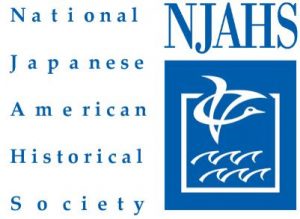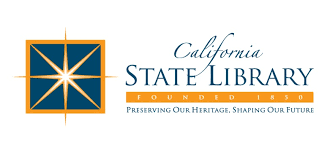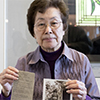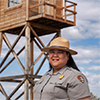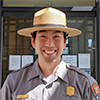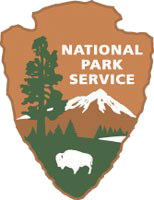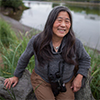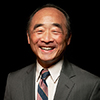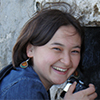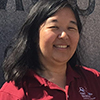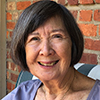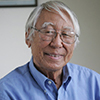In the 1940’s, young people of Japanese ancestry faced a deep moral dilemma—the decision of whether or not to serve in the US military while their families were incarcerated in concentration camps by the U.S. government without due process. In the workshop, We Are All Americans, we will address the compelling question: How did the experience of being forcibly removed from their homes and incarcerated affect the choices made by people of Japanese ancestry as they responded to the government’s call for loyalty and service? Why did some individuals believe civil rights should be restored before service, while others were committed to proving themselves to gain back civil rights?
Join your colleagues for open-ended inquiry into what it means to be American – then and now.
This 2-1/2 to 5 hour online interactive workshop, (length depends on regional location), explores our topic through examination of primary source documents, case studies, images, and secondary sources in the We Are All Americans curriculum. Sessions will be broken up with 15-minute breaks.
The curriculum will focus on four case studies:
- Gordon Hirabayashi, who registered as a Conscientious Objector while his close cousin fought overseas
- Jack Tono, a draft resister with the Heart Mountain Fair Play Committee
- Harry Fukuhara, who served with the Military Intelligence Service (MIS)
- Walter Tsukamoto who served with the Military Intelligence Service (MIS)
We will also have a live presentation on John Okada (MIS), by speaker Frank Abe, author of John Okada: The Life & Rediscovered Work of the Author of No-No Boy.
This curriculum is designed for secondary students. It has also been used by teachers of middle school students who have modified and adapted it for both social studies and language arts classes.
Taught by Educational Experts in Japanese-American History
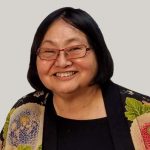
DR. GRACE MORIZAWA is the Education Coordinator for the NJAHS. Previously she was an elementary school teacher in Oakland and principal of Lake Elementary School in San Pablo, CA. Morizawa is a Sansei, third generation Japanese American. Her parents were incarcerated in Heart Mountain. Grace is a teacher consultant with the Bay Area Writing Project. She has a BA in English from Pacific University, an MA in Creative Writing from San Francisco State, and a doctorate from the Leadership in Education and Equity Program at University of California, Berkeley.
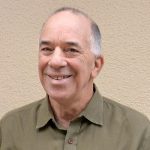
DR. STAN PESICK taught 11th grade United States history in the Oakland Unified School District for eighteen years. From 2008-2012 he coordinated the Oakland Unified History/Social Studies Department. Stan has worked with the Bay Area Writing Project as a teacher consultant since 1989. He has worked as a curriculum consultant to the NJAHS since 2014. Stan is currently working with National Writing Project, University of California, Berkeley, to develop materials and methods focused on helping students write more effectively for political and civic purposes. Stan has a Ph.D. from Stanford University.
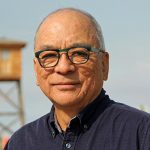
FRANK ABE won an American Book Award for JOHN OKADA: The Life & Rediscovered Work of the Author of No-No Boy (University of Washington Press). He made the award-winning PBS documentary, Conscience and the Constitution, on the largest organized resistance to the incarceration of Japanese Americans, and is collaborating on a new graphic novel on camp resistance, We Hereby Refuse, coming in 2021. Also for 2021, he is co-editing an anthology for Penguin Classics on The Literature of Japanese American Incarceration.
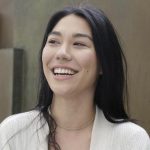
MELISSA AYUMI BAILEY is the Program Development Associate for the National Japanese American Historical Society (NJAHS) where she has been on staff since 2013. She is primarily responsible for grant writing and project management. Melissa received her BA in History from UC Santa Cruz in 2012, and her experiences there as well as her personal connection to the Japanese American incarceration experience led her to pursue a position at NJAHS. Melissa is a native San Franciscan and still calls “The City” home to this day.
Workshop Format
This is an online interactive workshop with some asynchronous work. We will send some readings to review ahead for small group breakout sessions where you will discuss the readings with 4-5 teachers. We will also have large group sharing and discussion. This workshop is not a webinar; it is highly interactive. We have found that we learn and grow in our thinking when we work collaboratively and talk with each. Sessions will also include speakers with Q and A, a short video, and a time to write briefly and share writing.
Teachers will have access to all curriculum materials online. We ask that you download the materials to refer to during the workshop (not screen switch). Because the workshops are live and interactive, we encourage your full participation and you will be asked to share with each other as much as possible.
Workshops Tailored for 5 Regional Areas of the U.S.
– Minimum Stipend $200 –
We Are All Americans is a place-based curriculum workshop. Subject matter is being customized to address the unique teaching opportunities in six regional areas:
CHICAGO – June 29-30
Application Deadline: June 24 or until workshop is full.
Time: 10:00-12:00 Central Time.
Regional Presenter:
JEAN MISHIMA. Since the middle of 1990’s, CJAHS has presented a first-voice narrative on the incarceration of the Japanese, Japanese American in 10 internment camps during WW II. And as a Special Education teacher for 12 years with the Chicago Public School System, and a Special Needs Counselor at Lincoln Park High School for 9 years, Mishima gained the experiences as an educator to spearhead an educational subcommittee in developing a multi-cultural curriculum for grades K-12. She has co-presented numerous teachers’ workshops at the Field Museum and Harold Washington Library.
Participant Stipend: $200
Regional Sponsors: The Japanese American Service Committee and the Chicago Japanese American Historical Society.

BOISE – July 9-10
Deadline: July 4 or until workshop is full.
Time: 10:00-12:30 Mountain Time.
Regional Presenters:
HANAKO WAKATSUKI. Hanako is the Chief of Interpretation and Education at the Minidoka National Historic Site. She has approximately 12 years of experience in the museum and public history field. In the past she has worked for the Idaho State Historical Society, Tule Lake National Monument, and the U.S. Navy Seabee Museum. She also served a one-year detail with the White House Initiative on Asian Americans and Pacific Islanders (WHIAAPI) as the Region 9 Advisor, leading collaborative outreach programs in Southern California, Nevada, Arizona, and Hawai`i. She is currently serving as WHIAAPI’s Region 10 Lead, overseeing Idaho, Washington, and Oregon.Hanako received her B.A. in History and B.S. in Political Science from Boise State University, and her M.A. in Museum Studies from Johns Hopkins University. She is passionate about visitor services, making cultural institutions accessible to the community, and bridging the gap between academia and the public.
KURT IKEDA. Kurt is an Educational Specialist for the Southern Idaho National Parks: Craters of the Moon National Monument and Preserve, Hagerman Fossil Beds National Monument, and Minidoka National Historic Site. As a 2nd generation Japanese American, Kurt’s work is rooted in the WWII incarceration story of his grandfather, illuminated by his experience at the Japanese American Museum of Oregon, and inspired by his service as a High School English teacher through Teach for America. Kurt received his B.A. from University of California, Los Angeles and M.A. in Urban Education: Educational Policy and Administration from Loyola Marymount University.
Curriculum Specific to this Region: Virtual Tour of Minidoka Concentration Camp.
Participant Stipend: $200
Regional Sponsors: Minidoka National Monument and Friends of Minidoka.

SEATTLE – July 15,16,17
Application Deadline: July 10 or when workshop is full.
Time: 9:30-11:30 Pacific Time.
Regional Presenters:
KAREN MATSUMOTO. Karen is a teacher, naturalist, and filmmaker. She is the daughter of WWII MIS veteran Roy Matsumoto and Associate Producer of “Honor & Sacrifice,” an award-winning documentary about her father and his experiences in Burma during WWII. She has learned from her parents’ experience about the hardships of being a person of color in America. More recently, as a high school teacher for the Suquamish Tribe, she has focused her work on issues of tribal sovereignty and environmental justice. She currently works as a climate change educator for the Suquamish Tribe. Karen is on the Board of Trustees for the Bainbridge Island Japanese American Community, and has been producer of several documentaries on the Japanese American internment experience with Stourwater Pictures. She continues her work on Nikkei history, and her newest project is an exhibition of her grandfather’s early 20th century photographs of Japanese immigrant farmers in the Los Angeles Basin and rare photographs of the City of Hiroshima prior to the atomic bomb.
CLARENCE MORIWAKI. Clarence is the president of the Bainbridge Island Japanese American Community and is a founder and past president of the Bainbridge Island Japanese American Exclusion Memorial Association. For nearly 20 years, Clarence has worked to create and develop the Memorial and earn designation as a National Historic Site. In 2008 he was awarded the National Parks Conservation Association’s highest national accolade, the Marjorie Stoneman Douglas Award, and in 2017 the Bainbridge Island Chamber of Commerce named him Citizen of the Year. Clarence is currently a member of the Speakers Bureau member for Humanities Washington, the principal of Forest Edge Communications, and he has served as CEO of the Japanese Cultural and Community Center of Washington, a senior aide and spokesperson for President Bill Clinton, Governor Mike Lowry, Congressman Jay Inslee, Lt. Governor John Cherberg, the Washington State Senate, Kitsap County, Sound Transit and the Portland Rose Festival Association, and as campaign manager for the ACLU of Washington. He is the state’s first and only 12 year-old Eagle Scout.
Curriculum Specific to this Region: The story of Japanese Americans from Bainbridge Island.
Participant Stipend: $300. Clock hours available.
Regional Sponsors: Nisei Veteran’s Committee Memorial Hall, Bainbridge Island Japanese American Community, and the WA Office of the Superintendent of Public Instruction — Kip Tokuda Civil Liberties Grant.


MINNEAPOLIS – July 19, 30, 31
Application Deadline: July 24 or until workshop is full.
Time: 10:00-12:30 Mountain Time.
Regional Presenters:
KIMMY TANAKA. Kimmy is a Site Supervisor at Historic Fort Snelling with the Minnesota Historical Society where she assists in daily operations and program development. She holds a master of architecture degree from the University of Minnesota. Her co-authored article, “Fuji-Ya, Second to None: Reiko Weston’s Role in Reconnecting Minneapolis and the Mississippi River,” won the Solon J. Buck Award for best article of 2018 in Minnesota History magazine.
Speaker from the JACL Education Committee.
Curriculum Specific to this Region: Military Intelligence Service Language School at Fort Snelling.
Participant Stipend: $300. Clock hours available.
Regional Sponsors: Minnesota Historical Society and the Twin Cities Japanese American Citizens League.

WASHINGTON, DC – August 4, 5
Application Deadline: July 30 or when workshop is full.
Time: 2:00-4:30 pm Eastern Time.
Regional Presenters:
JULIE ABO is a third and fourth generation Japanese American whose parents were incarcerated at Minidoka and Tule Lake incarceration sites during WWII. She has been an English and English Language Learners teacher in Washington, California, Illinois, Nebraska and abroad for middle, high school and college students for 24 years. She is currently the Washington Affairs Director for the Heart Mountain Wyoming Foundation.
LINDA SATO ADAMS was the supervisor of Fine Arts in the Montgomery County Public Schools, MD, where she was responsible for the school district’s dance, music, theatre, and visual art programs. Recently, she has worked for Towson University as an adjunct professor overseeing visual art student teachers. Linda is currently an administrative consultant for the National Japanese American Memorial Foundation as well as a co-vice president of Japanese American Citizens League, Washington DC Chapter. Linda is a Sansei (third generation Japanese American), and her family members were incarcerated in Tule Lake, CA and Minidoka, ID. Her father and uncle served in the 442nd Regimental Combat Team during WWII, a segregated unit comprised mostly of Japanese Americans. Linda has a BS from Northern Illinois University in art education and an MS from Trinity University in educational leadership.
JANICE NAKANO FADEN is the co-president of the Japanese American Citizens League (JACL) DC Chapter. Previously she was an elementary school teacher; reading specialist; and principal and curriculum director in Montgomery County Public Schools, Maryland. She is a Sansei whose parents were incarcerated in Tule Lake and extended family in Heart Mountain. She has a BA from Oberlin College and MAT from Harvard University. In retirement she is a hearing officer for Montgomery County Public Schools.
DR. TAKASHI HOSHIZAKI was a teenager as was one of the 63 Resisters of Conscience at Heart Mountain and spent two years in a federal penitentiary as a result. He later served in the US Army Medical Corps. Hoshizaki went on to be the twice president of the Southern California Academy of Sciences; published numerous scientific papers and articles; served as a consultant to NASA. He is a member of the Heart Mountain Wyoming Foundation.
Curriculum Specific to this Region: Dr. Takashi Hoshizawa, Heart Mountain Resister.
Participant Stipend: $200. Possibility of credit.
Regional Sponsors: DC Japanese American Citizens League and Heart Mountain Wyoming Foundation.

Workshop Details
- Workshops range from 2 to 5 days depending on the region.
- Each daily session will be 2 hours and 30 minutes (includes three 15 minute breaks).
- Email support for the curriculum is available during the school year.
- There is an optional opportunity to participate in a small online study group for classroom adaption of the curriculum and other teaching implications.
- Participants will be given an honorarium for attending. The stipend amount varies by regional workshop as they vary in amount of time.
Technology
- We will use Zoom and a yet to be decided back-up program.
- Participants are required to have access to the Internet to participate in the workshop; a dependable connection and high-speed Internet is strongly recommended for an optimal experience.
- Attendees must have visual and audio support to interact with colleagues. The sessions require the use a webcam to help create a shared learning experience.
- We will have a brief tech check-in for all participants prior to the workshop and tech support will be available during the workshop.
For questions about the workshop, please email Grace Morizawa.
This workshop is co-sponsored by the National Japanese American Historical Society, the National Park Service, and our regional partners.
The project was funded in part, by the Japanese American Confinement Sites grant, administered by the National Park Service, JA Community Foundation, and the California Civil Liberties Public Education Program.
Top image: US Army recruiter addressing inmates. Topaz WRA camp, February 1943, National Archives.
